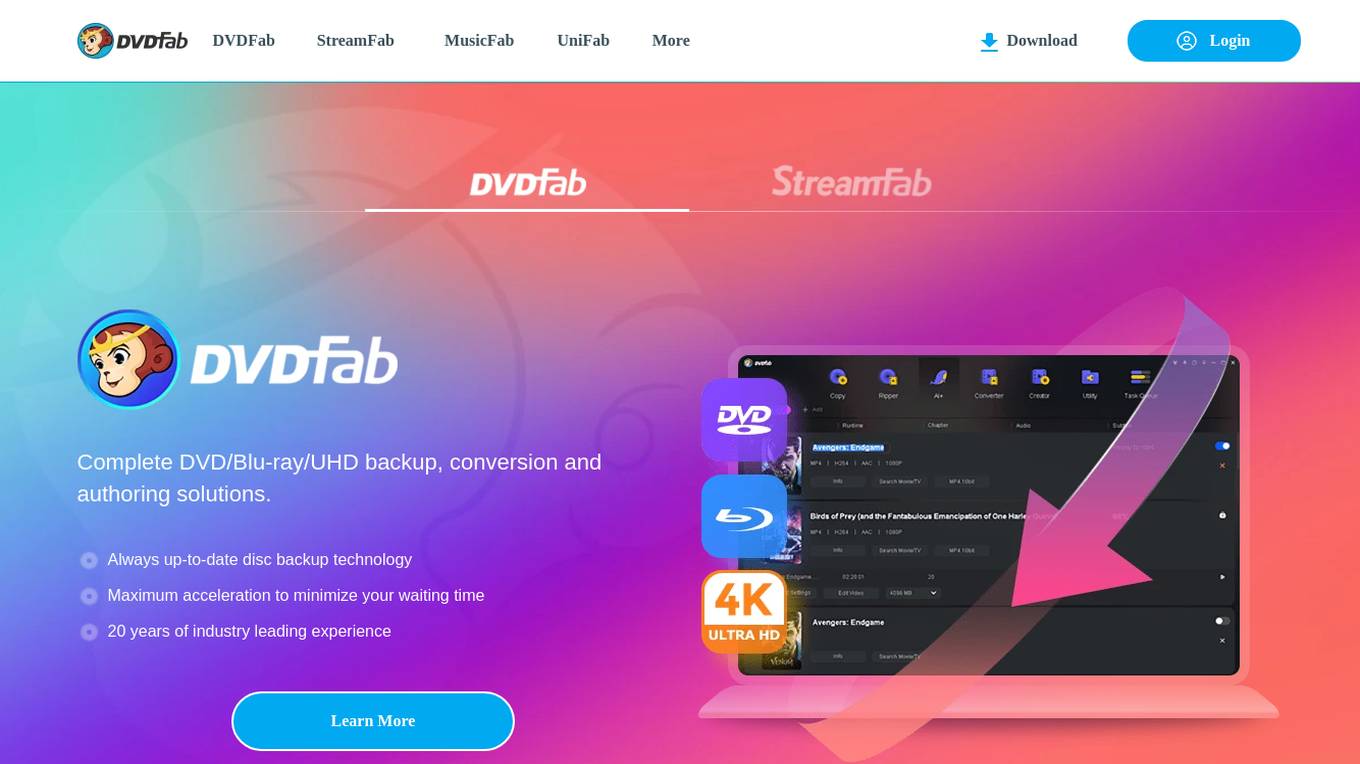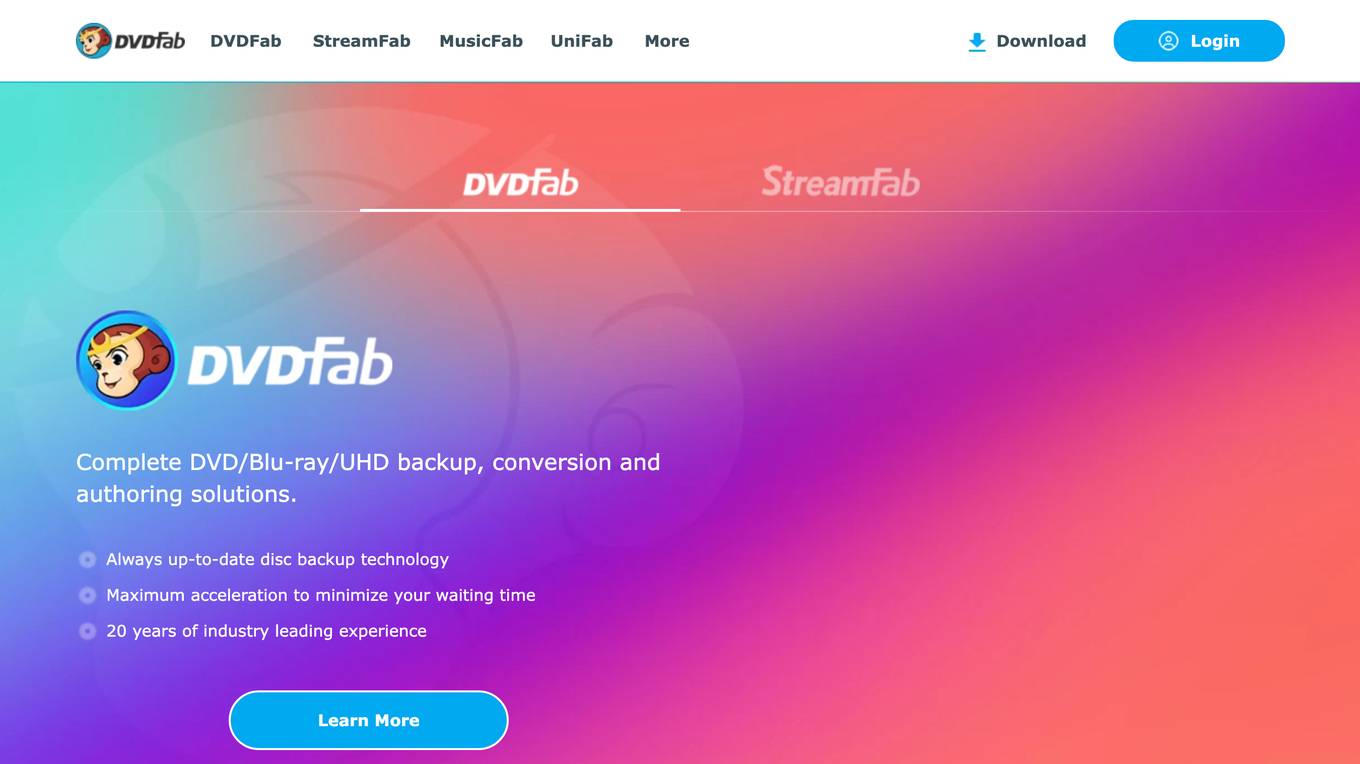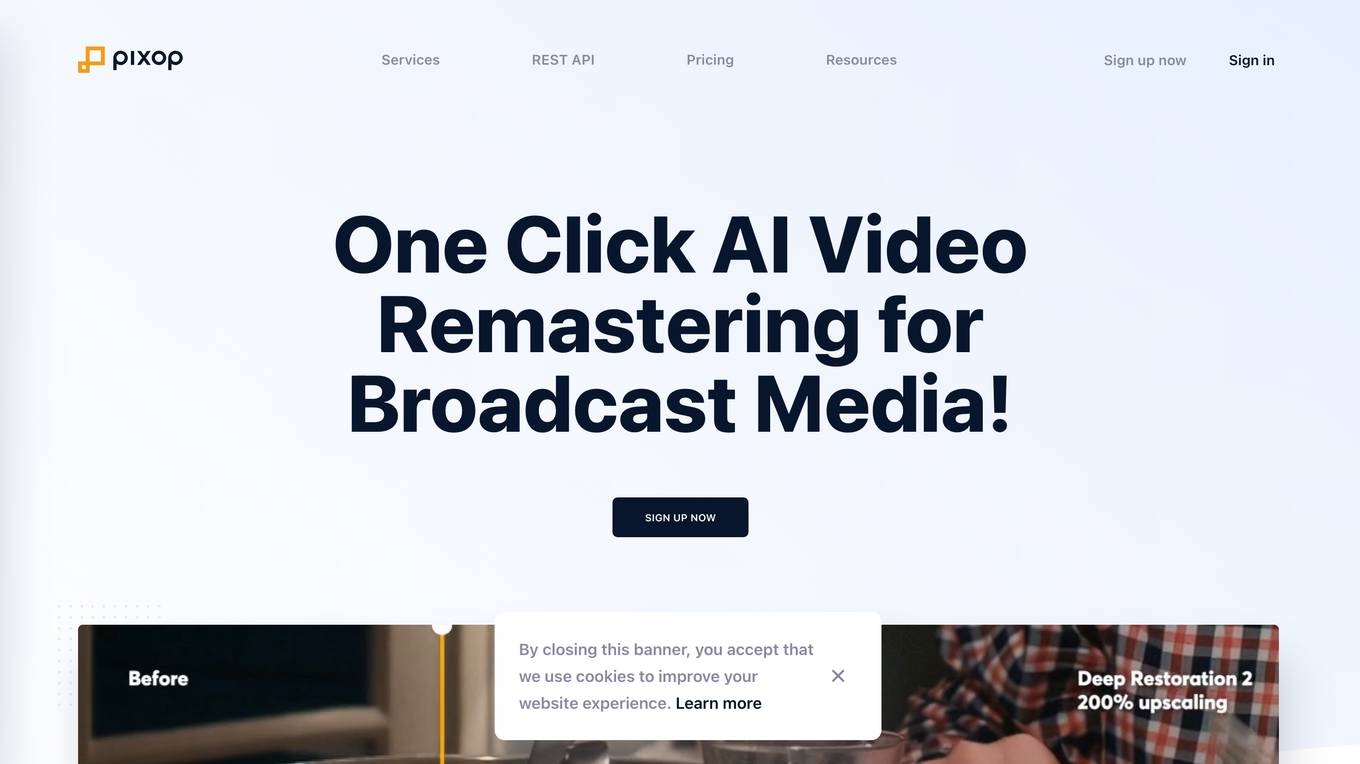Best AI tools for< Uhd Burner >
Infographic
3 - AI tool Sites

DVDFab
DVDFab is a comprehensive multimedia solution provider that offers a wide range of software for DVD, Blu-ray, and UHD backup, conversion, and authoring. With over 20 years of experience in the industry, DVDFab has become a trusted name among users for its reliable and high-quality products. The company's flagship product, DVDFab All-In-One, is a comprehensive suite that includes all of DVDFab's DVD, Blu-ray, and UHD tools. Other popular products from DVDFab include StreamFab, a streaming video downloader; UniFab, an AI-powered video enhancer; and PlayerFab, an Ultra HD player.

DVDFab
DVDFab is the world's leading multimedia solution provider, offering a wide range of tools for DVD, Blu-ray, and UHD disc backup, conversion, and authoring. With over 20 years of industry experience, DVDFab provides users with comprehensive solutions for disc editing, disc-to-file conversion, and video enhancement. The application also includes features like DVD/Blu-ray/UHD copying, format conversion, video playback, streaming video downloading, and AI-powered video upscaling. Trusted by millions of users worldwide, DVDFab continues to innovate and expand its product line to meet the evolving needs of multimedia enthusiasts.

Pixop
Pixop is a cloud-based AI- and ML-powered video enhancer that is designed to help production companies, TV stations, rightsholders and independent creators monetize their digital archives by enhancing and upscaling footage to fit today's screens. Pixop's automated AI and ML filters make easy work of remastering your digital masters from SD all the way to UHD 8K. No expensive hardware or complicated setups involved.